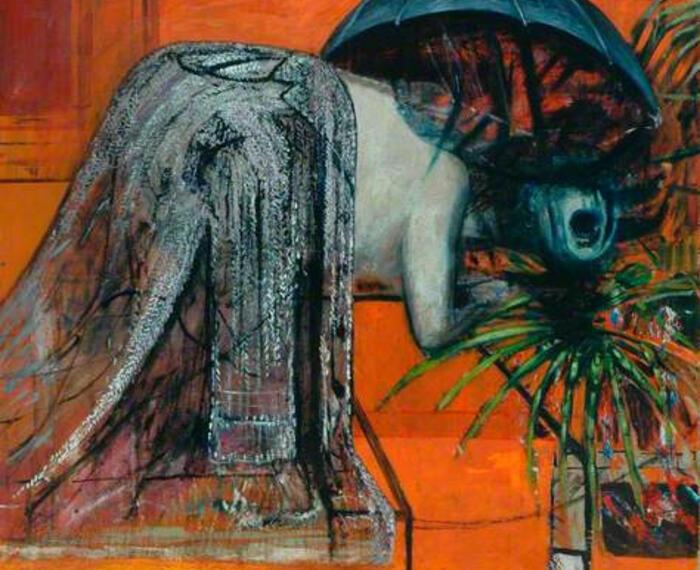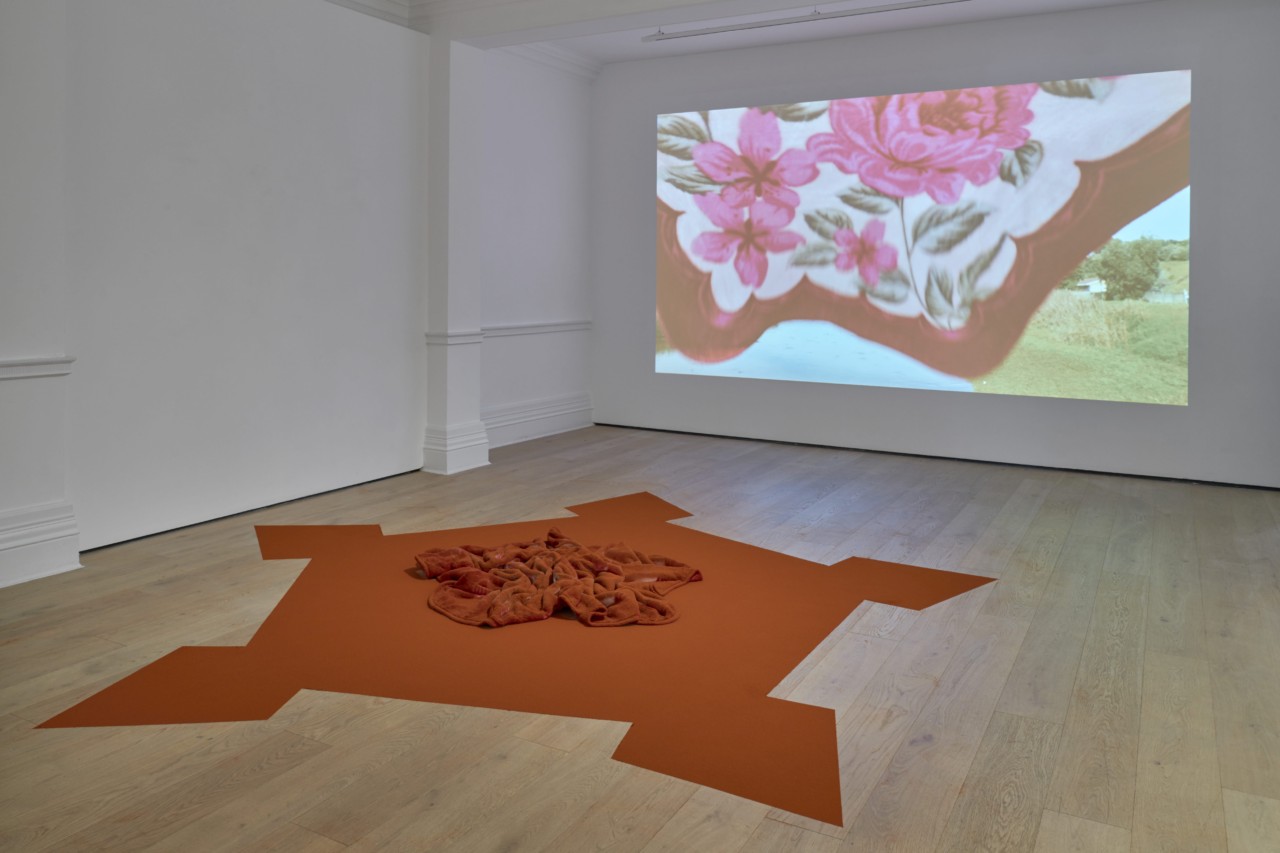


Berni Searle, Com-fort (Variation), 2019. © The Artist
The great curator Okwui Enwezor (b.1963), who sadly passed away in March 2019, was a formative influence on my curatorial career, having worked with him on Documenta 11 in 2002. It was an edition that was seminal, perhaps the first exhibition to tell a truly global story of art, seeking no less than ‘the full emergence of the margin at the centre.’
Just as important to Enwezor however, was the 2nd Johannesburg Biennale in 1997, which took place in the immediate aftermath of Apartheid. In one of the most important exhibitions of the 1990s, Enwezor used South Africa’s particular global location and history to highlight the converse effects of colonialism on the Global South, with much of the work grappling with the concepts of migration, exile and the loss of a sense of home.
This exhibition at Richard Saltoun Gallery, curated by acclaimed academic and art historian Tamar Garb, restages works by two of the artists featured in this monumental show, as well as a few of their more recent pieces.
Vivienne Koorland (b.1957) and Bernie Searle (b.1964) are two of South Africa’s foremost female artists. Although the medium of their artistic oeuvres is very different – Searle mainly uses photography and moving image, whilst Koorland often works with painting and recycled canvases – there is much they share thematically.
Both artists explore how contemporary art can negotiate national boundaries, cartographic hierarchies and the movement and flow of people both in South Africa and in today’s global landscapes.
Vivienne Koorland’s early monumental mind maps such as The Local Monuments 1: Childhood (1995) and The Local Monuments II: Central Africa (1997) resemble historic maps, reference the dividing cartography of colonialism whilst also discussing cultural, geographical and metaphysical dislocations.
Berni Searle reconstructs the ground plan of the 17th Century Castle of Good Hope, a floor installation with the silhouette of a fort, filled with paprika powder. It refers to the earliest colonial building in South Africa, whilst referencing the role the Cape once played as a trading post for goods and peoples from the East. Searle develops this theme in the photographic series Colour Me (1998), in which she covered herself in spices in reference to the Dutch East India Company’s trade.
More recent works such as Koorland’s Pays Inconnu (2016) and Searle’s As the Crow Flies (2017) testify that both artists, though strongly rooted in South African histories and politics, continue to raise important universal questions addressing notions of history, memory and place.
Enwezor strongly believed that art can provide a space for ‘mapping new incarnations of the world and imaginings of possible futures.’ In relentlessly confronting colonial structures, Koorland’s and Searle’s work is a testimony to his vision of art’s role as a catalyst for change.
By restaging a section of Enwezor’s Johannesburg Biennale, so bound up with the aftermath of Apartheid, Tamar Garb sends a strong political message in today’s political climate when national borders and colonial divides are being reinforced across the globe. Made Routes: Mapping and Making also offers the rare opportunity to see works by Koorland and Searle that have not been shown in public for the past two decades.
Christine Takengny
Curator
Two photographs, Untitled (Red) from the Colour Me series (1998) and In wake of (2014) by Berni Searle have been recently acquired for Manchester Art Gallery through the Valeria Napoleone XX Contemporary Art Society award, which supports the acquisition of significant works by living female artists for a museum collection. They will be on display at Manchester Art Gallery from 10 September onwards. Watch interview with Berni Searle about the acquisitions.
Richard Saltoun, 41 Dover Street, Mayfair, London W1S 4NS. Open Tuesday-Friday 10.00-18.00, Saturday 11.00-17.00. Exhibition continues until 26 September 2019. www.richardsaltoun.com